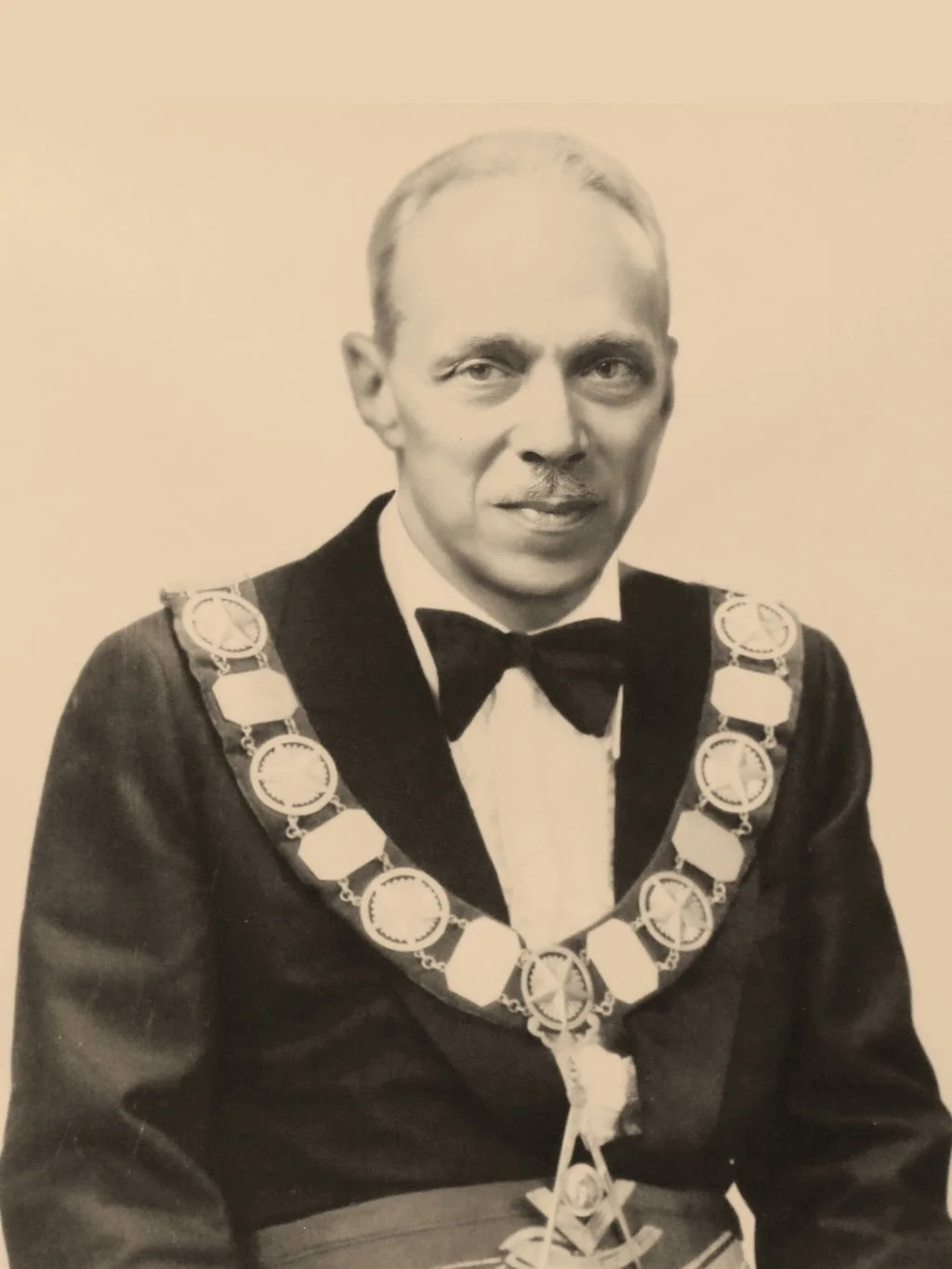Order of Merit for National Foundation
3rd class
Independence Medal
What is Merit for National Foundation:
A medal awarded to those who have made distinguished contributions to the establishment of the Republic of Korea or those who have made distinguished contributions to the foundation of the nation.
3rd class:
More than 2 years of activity
George Lewis Shaw(🇬🇧):
[1880. 1. 25 ~ 1943. 11.13]
Achievements
Provided Critical Support to the Korean Independence Movement:
Assisted the Korean Provisional Government by transporting weapons, delivering government funds, and facilitating communication between activists.
Played a vital role in the independence campaign by allowing the Korean Provisional Government's Andong Transportation Branch Office to operate within the same building as his company, Yilyungyanghaeng.
His company served as a connection point between the provisional government's offices in China and Korea, and acted as a military base to prepare for combat.
Defied Japanese Authorities:
Despite intense Japanese surveillance and arrest, continued to aid Korean independence fighters.
Exercised extraterritorial rights to resist Japanese colonial pressure, becoming a thorn in the side of Japanese officials.
Was incarcerated in Seodaemun Prison for four months but continued his support for the Korean independence movement even after his release.
Recognized by Korean Independence Leaders:
Received the Golden Medal for Merit from Ahn Chang-ho and Rhee Syngman in 1921 for his contributions to the independence movement.
Resumed operations at the Andong office after his arrest, allowing Korean activists to continue their work in secrecy.
Sustained His Support Despite Personal and Financial Hardships:
Despite financial difficulties and Japanese crackdowns, Shaw continued his support for Korean independence until he was forced to close his company.
His dedication to the cause endured until his death in 1943, after 31 years of support for the Korean independence movement.
Posthumous Recognition:
On March 1, 1963, the Korean government posthumously awarded Shaw the Order of Merit for National Foundation.
His granddaughter, Marjorie Hutchings, accepted the award on his behalf in 2012, honoring his legacy and contributions to Korea’s independence.
Verdicts
In 1907, Bethell was tried by the British consul-general in Seoul for breaching public order through ten articles published in his newspapers. He was sentenced to six months of probation.
In 1908, Japanese authorities continued to pressure for his expulsion from Korea, leading to a second trial involving Korea, Japan, and the U.K. Bethell was sentenced to three weeks in jail, six months of probation, and fined GBP 350. He served three weeks in a Shanghai jail before being released on July 11, 1908.
Japanese media falsely accused Bethell of embezzling public funds collected by Koreans, but Bethell took the case to the British Supreme Court in Shanghai and won in December 1908.
George Ashmore Fitch(🇺🇸):
[1891. 2. 08 ~ 1960. 8.13]
Achievements
Served as YMCA General Secretary in China:
Arrived in Shanghai on December 25, 1909, and served as the general secretary of the YMCA across various regions in China until 1945.
Actively engaged with Chinese Nationalist Party members and was a founding member of the Shanghai Rotary Club.
Collaborated closely with prominent figures such as Sun Yat-sen, Chiang Kai-shek, and Zhang Qun.
Supported the Korean Independence Movement:
Influenced by his father, George Field Fitch, who supported Korean independence activists.
Provided refuge to Kim Gu and his group after Yoon Bong-gil’s heroic act at Hongkou Park in 1932, protecting them from Japanese authorities for a month and aiding their escape from Shanghai.
Campaigned for the release of An Chang-ho, who was unlawfully arrested by Japanese police, by sending protest letters to French authorities and newspapers.
Established Nanjing Safety Zone During Nanjing Massacre:
Appointed as general secretary of the Nanjing YMCA in 1936.
Collaborated with John Rabe and other international figures to establish and operate a safety zone during the Nanjing Massacre in 1937, protecting civilians from Japanese atrocities.
Actively exposed the horrors of the Nanjing Massacre to the world, challenging Japanese imperialism.
Advocated for Korean Provisional Government in the U.S.:
His wife, Geraldine Fitch, became a patron of the American-Korean Association and delivered speeches on Korean independence in the U.S.
Reported to the U.S. State Department in 1944 on the structure and potential post-war roles of the Korean Provisional Government, advocating for the use of the Korean Liberation Army in the war against Japan.
Contributed to Post-War Recovery Efforts:
Served as a representative for the United Nations Relief and Rehabilitation Administration (UNRRA) in China after retiring in 1945.
Appointed as general secretary of the Korean YMCA in 1947, organizing branches and leading relief efforts across Korea.
Continued his relationship with Korea after returning to the U.S. in 1949, focusing on relief and aid activities.
Recognized by South Korean Government:
Awarded the Order of Cultural Merit by the South Korean government on January 8, 1952.
Received the Order of Merit for National Foundation (Independence) on March 1, 1968.



